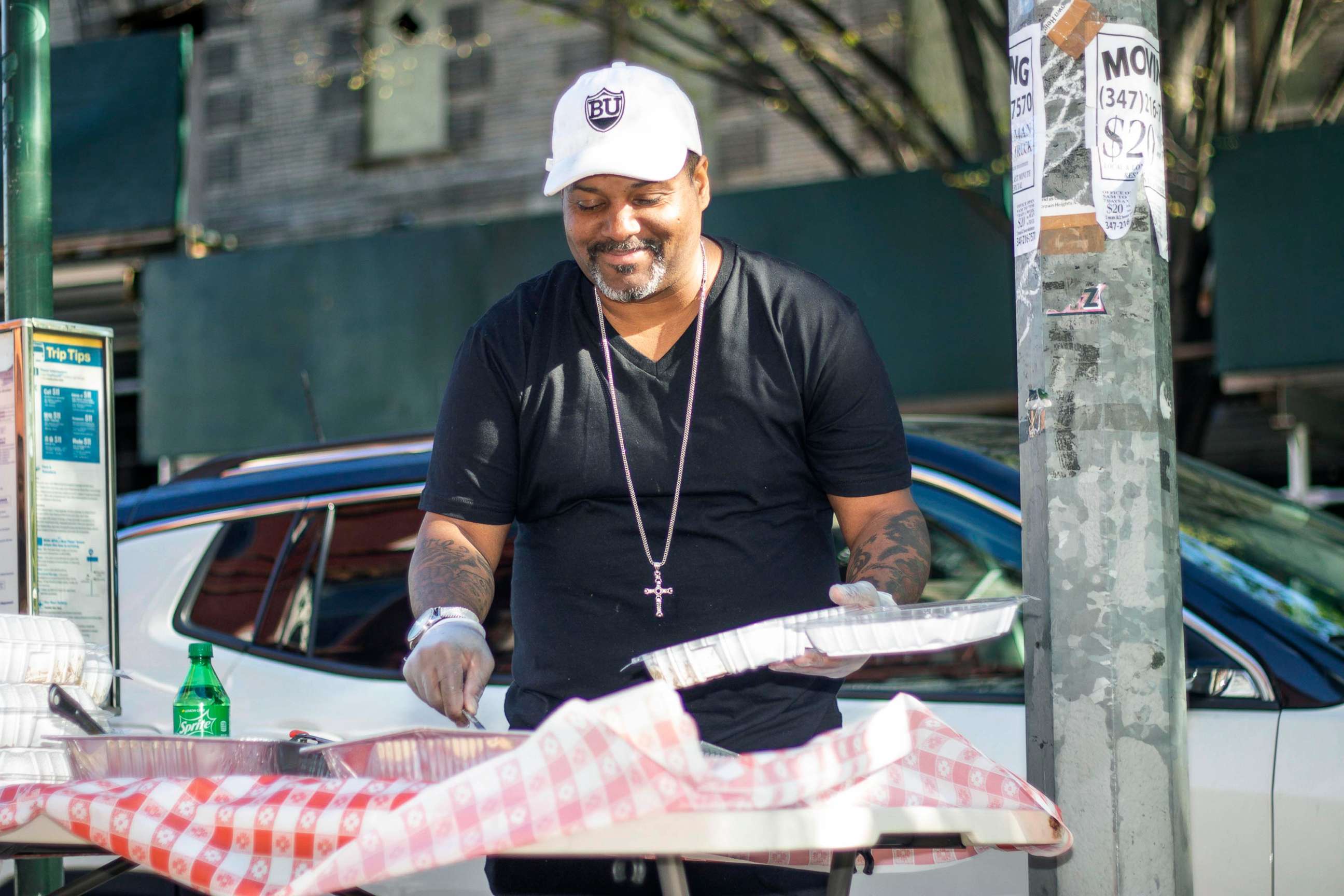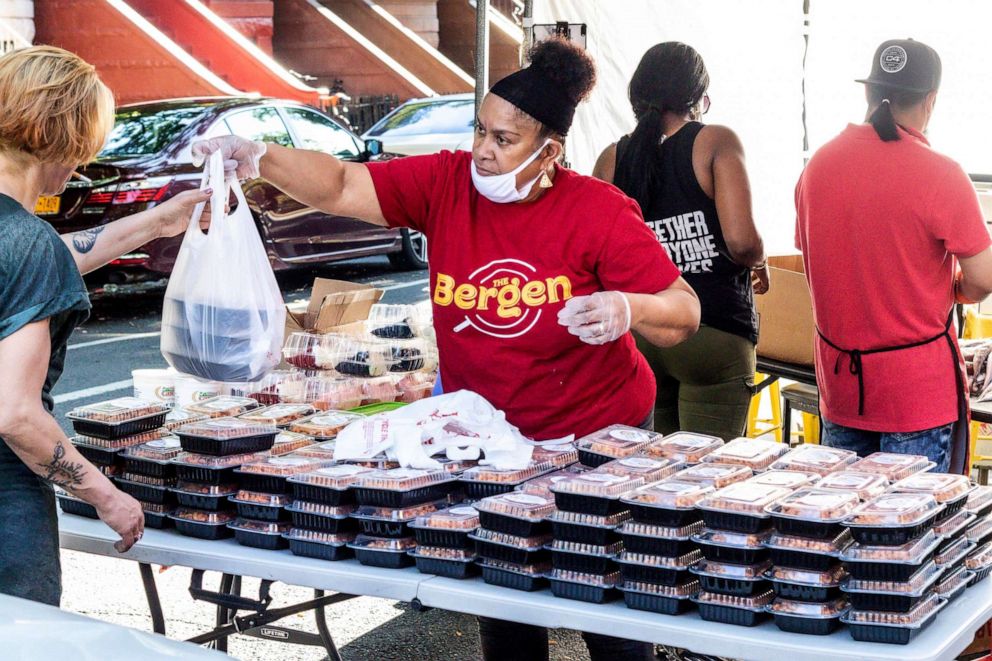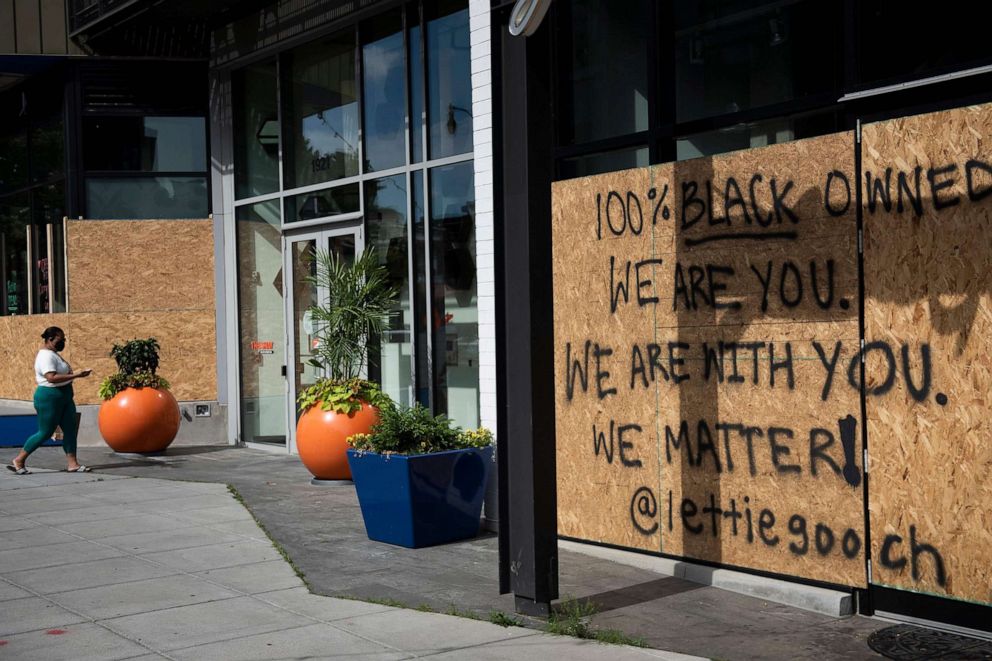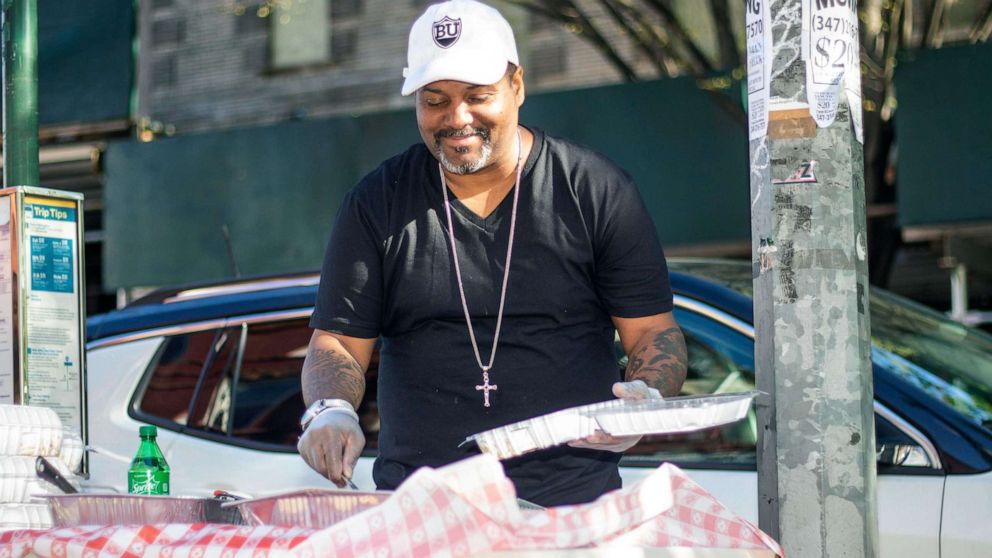Black-owned businesses see outpouring of support amid George Floyd protests
Tyrone Brown's restaurant in Brooklyn, The Bergen, is only six months old, but during a time when many businesses are struggling to keep their doors open amid the COVID-19 pandemic, he said he's struggling to keep up with a sudden surge in patronage.
"We had to actually pause some of the delivery systems because we couldn't handle the volume. We added on additional staff. We ran additional shifts," Brown said. "One day, we had to shut down by 8 o'clock not to have a three-hour wait for food."
In the aftermath of George Floyd's killing and the subsequent protests, many black-owned businesses like Brown's are seeing a wave of support and a much more diverse customer base.
"White people, they're saying, 'I've been searching for black-owned businesses to support, I want to make sure your doors stay open,'" Brown continued. "Normally, it's like, 'Hi, how are you?' Nothing deep, but now they're being very intentional and telling you why they're there and why they think it's important for black businesses to get the support they need."

Borne partly out of necessity and partly out of a desire to be self-sufficient, the legacy of support of black-owned businesses by black people is nothing new.
"In the past, within the black community, it was, 'Let's grow our own and so we support each other, and then this is how we bring the community together and move forward,'" said Kathryn Orr, director of entrepreneurship at the National Community Reinvestment Coalition.
Orr describes this current push to support black businesses as a "reawakening."
"People are recognizing how economics are at the center of racial inequality," she said.
According to the Brookings Institution, the average net worth of a white family, about $171,000, is almost 10 times greater than that of a black family's $17,150.

For Jennifer Risi, a writer living in Brooklyn who is white, dropping a book subscription from a popular company in favor of a black-owned one was a show of support for the Black Lives Matter movement.
"It's a little more expensive, but I'd rather use my money to make a difference, and I think that's something that I've realized is where you spend your dollars is inherently political," Risi said.
"Whites are jumping on, saying, 'Let's buy black,' and that's a very interesting and positive space," said Dedrick Asante-Muhammad, chief of the Race, Wealth and Community Division at the National Community Reinvestment Coalition. "I think one of the questions is how to maintain that momentum when this isn't the hot topic anymore, and we're on to some other important social justice issue that's dominating the headlines."
Large corporations also can play a role. Many, including Target, Nike and Sephora have aligned themselves in support of the Black Lives Matter movement through statements and social media posts, but Asante-Muhammad said there still are metrics on which these companies can improve to make greater strides.
"What percentage of their total supplies are from black and Latino businesses, what is the percentage of their hiring throughout and what percentage of the procurement, the services they buy from smaller companies, what percentages are from black-owned businesses?" said Asante-Muhammad. "I think those are the things that we can really hold corporations accountable to over the long-term."

Brown believes supporting businesses like his is a way to invest in the growth of black communities. Even though he had to take a leave of absence to recover from COVID-19, his restaurant never shut its doors and has provided free lunches and dinners to families in need throughout the shutdown.
"It's still the right way to keep the economics in the community going," said Brown. "We should all be very concerned and considerate about where our dollars go, understanding the movement of dollars and what it means to the advancement of your community."




